Vocabulary Building Normal Reading Comprehension Worksheets for 6-Year-Olds
7 filtered results
-
From - To
Enhance your 6-year-old’s language skills with our Vocabulary Building Normal Reading Comprehension Worksheets! These engaging, age-appropriate resources are designed to boost vocabulary and comprehension through fun activities and relatable stories. Children will explore new words, improve understanding, and develop critical thinking skills while enjoying interactive exercises. Each worksheet incorporates engaging illustrations and contextual questions to keep young learners interested and motivated. Perfect for home or classroom use, these worksheets foster a love for reading and support early literacy development. Visit our site to access these valuable tools and unlock your child's potential in reading comprehension and vocabulary expansion!
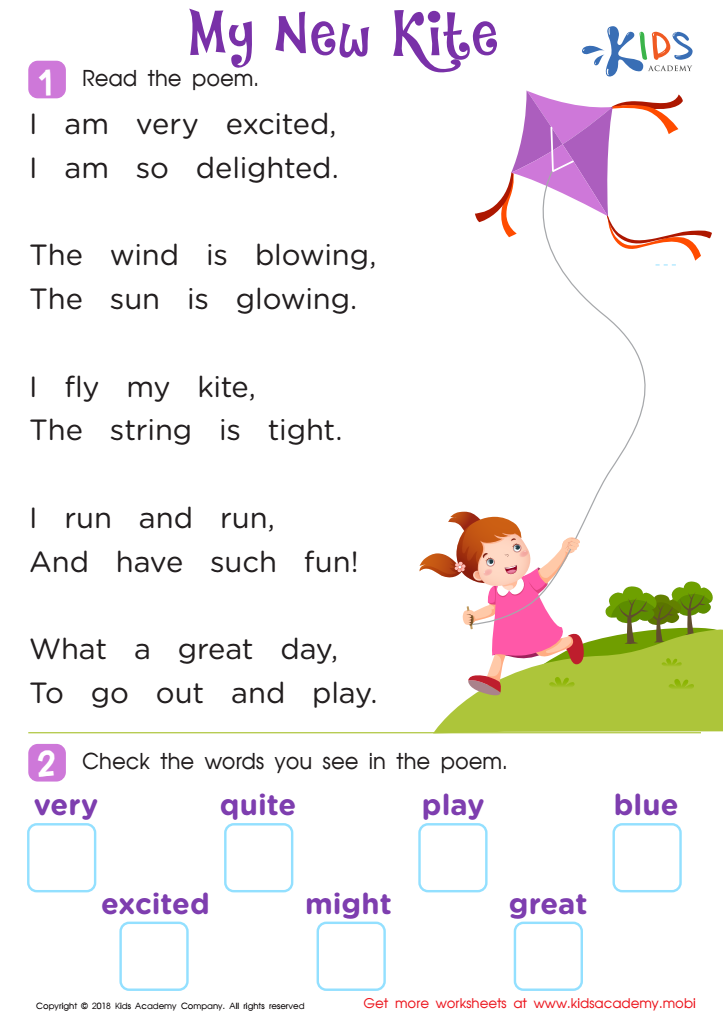

Poem: My New Kite Worksheet
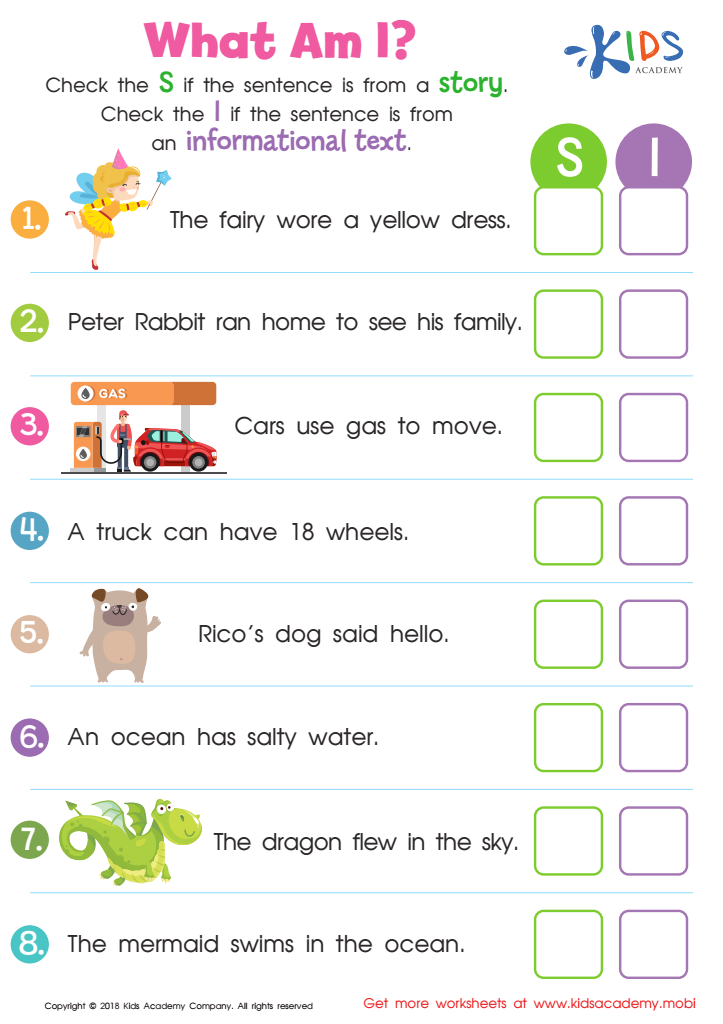

What Am I? Worksheet
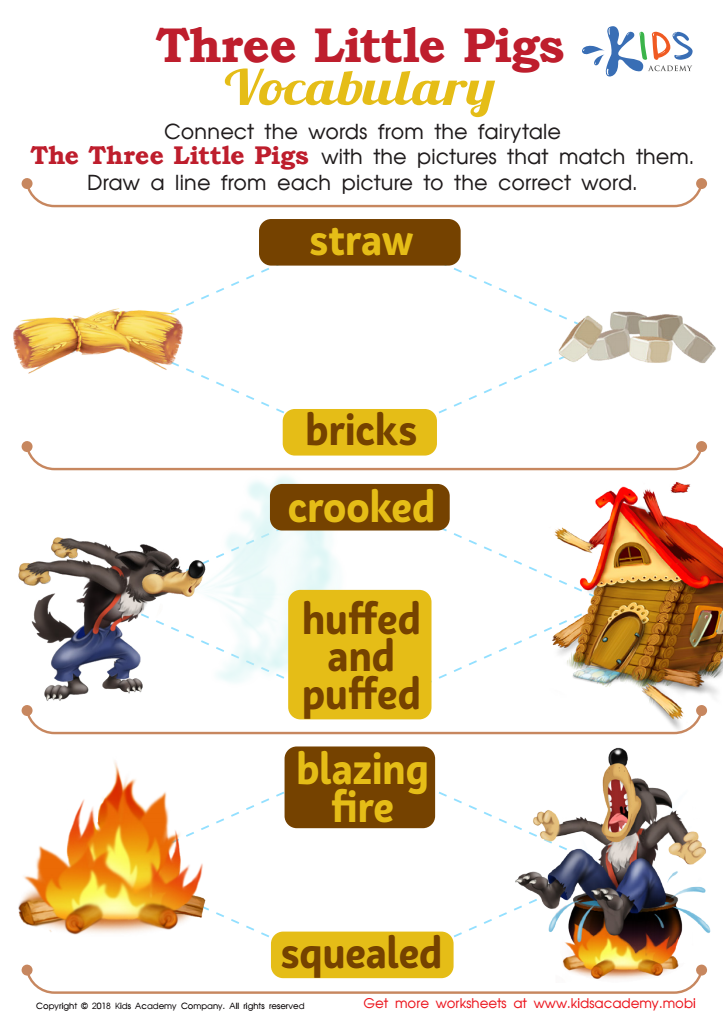

Three Little Pigs Vocabulary Worksheet
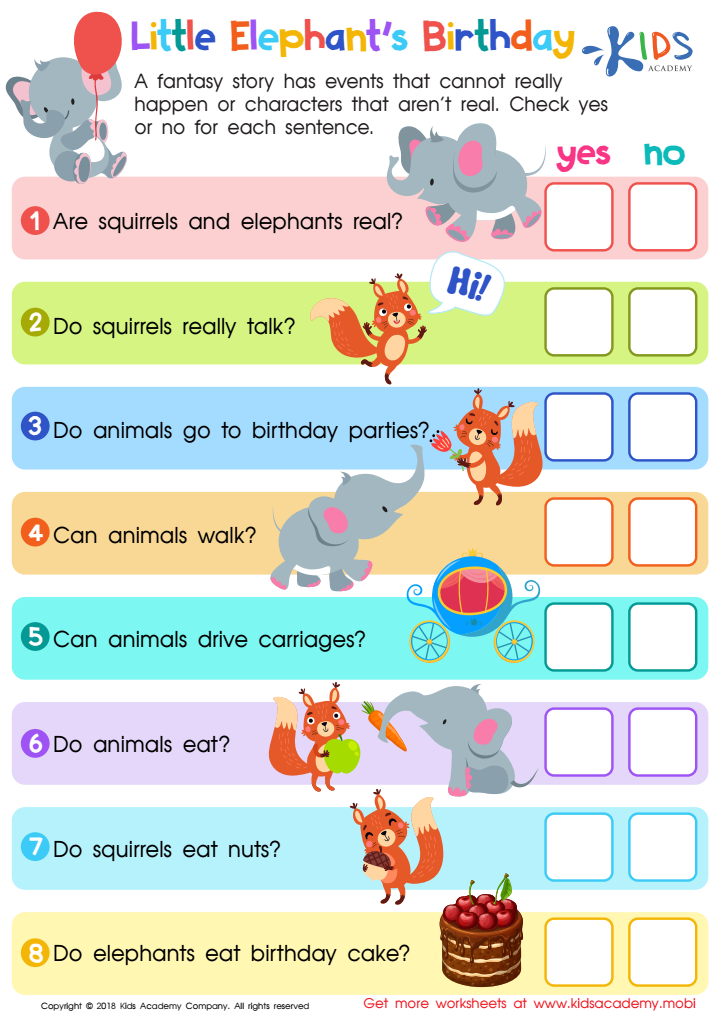

Little Elephant's Birthday Worksheet
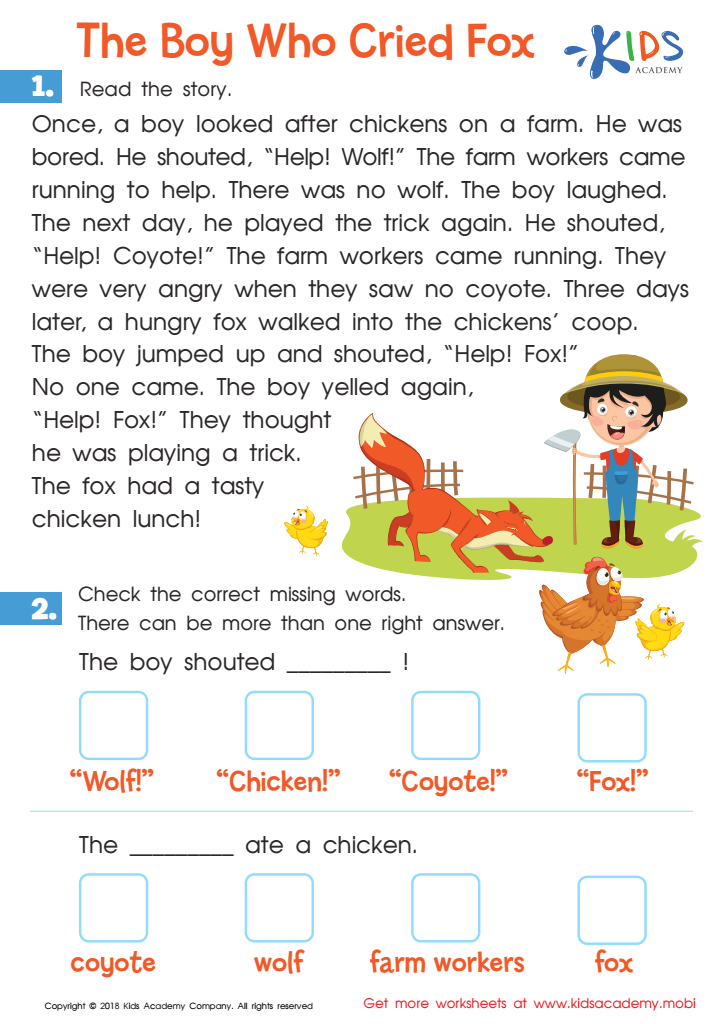

The Boy Who Cried Fox Worksheet
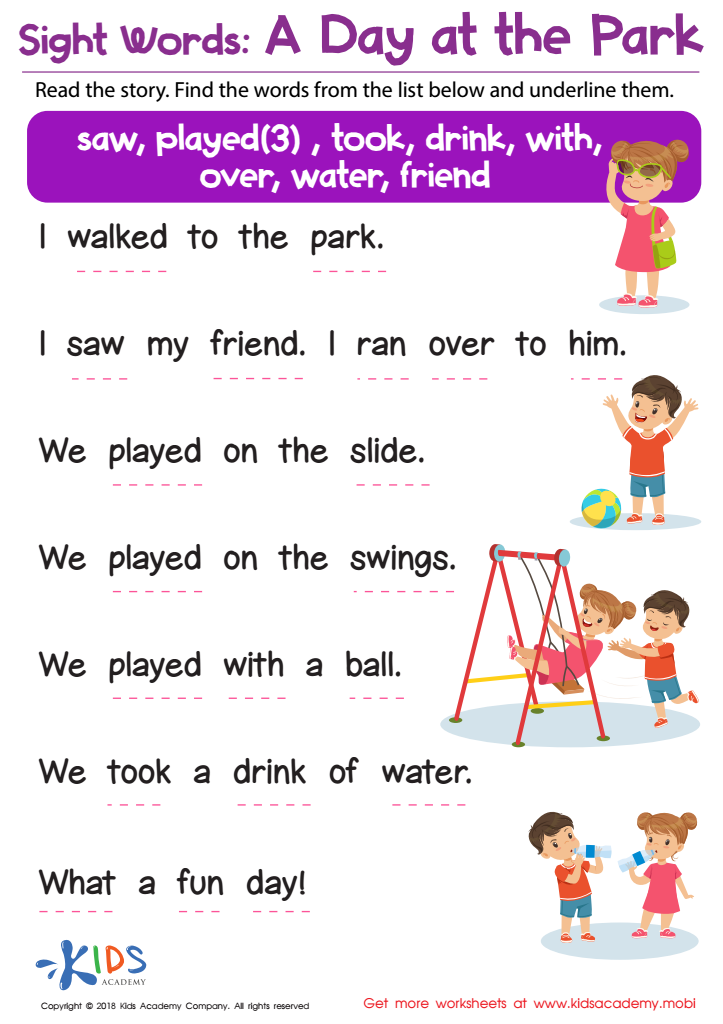

Sight Words: A Day at the Park Worksheet
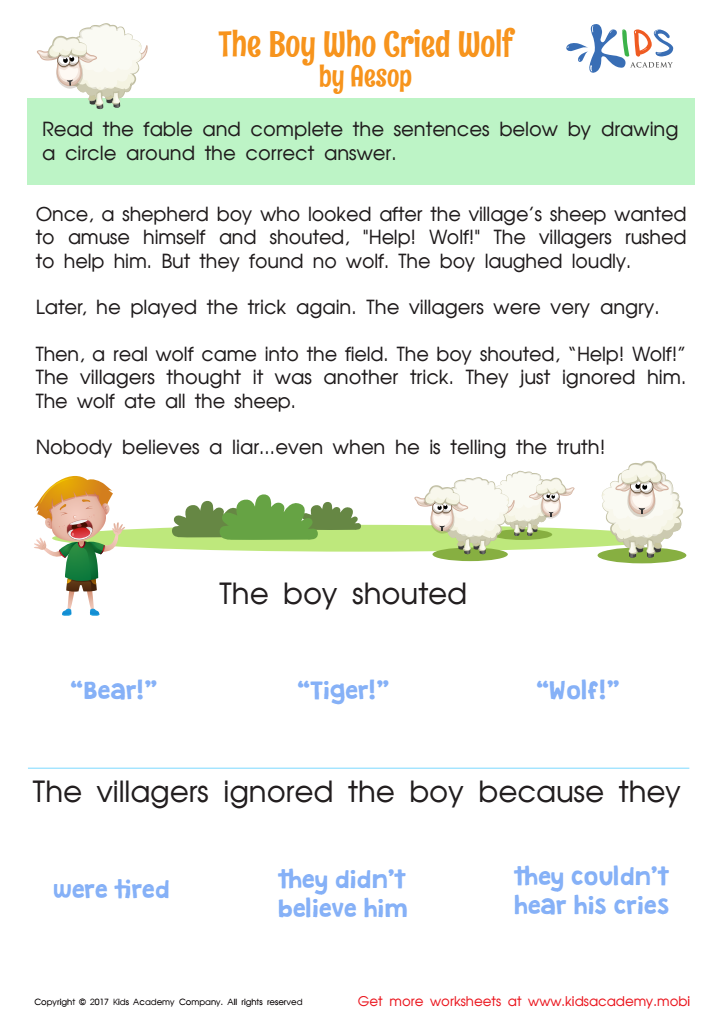

The Boy Who Cried Wolf Worksheet
Vocabulary building and reading comprehension are essential components of early literacy development for 6-year-olds. At this age, children's brains are remarkably adaptable, and they rapidly absorb language skills that will set the foundation for future academic success. A rich vocabulary enhances a child's ability to understand and express ideas, emotions, and questions, fostering effective communication. When children engage with new words through reading, discussions, and even play, they develop a more robust understanding of language, which is pivotal for comprehension.
Teachers and parents should prioritize vocabulary building because it directly influences a child's reading comprehension. A strong vocabulary allows children to decode texts with greater ease and understand stories' deeper meanings, improving their overall literacy skills. Furthermore, comprehension skills empower young learners to analyze connections, infer conclusions, and critically evaluate information they encounter.
Additionally, children with well-developed language skills tend to perform better academically in all subjects, as reading comprehension is a critical gateway to success in math, science, and social studies as well. Consequently, fostering a love for words and reading not only helps 6-year-olds excel now but also equips them with the tools they need for lifelong learning and personal growth.

 Assign to My Students
Assign to My Students






















